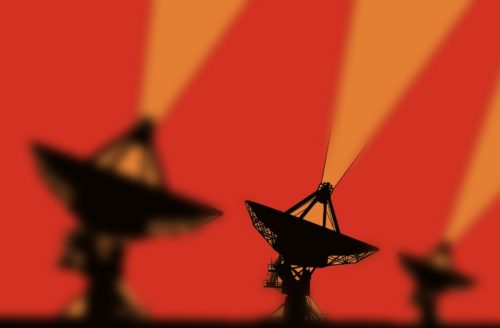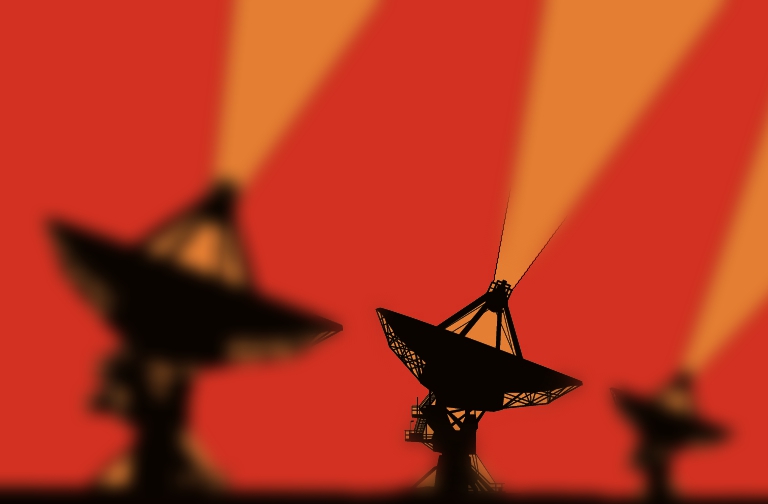
Evaluation and Recovery
“The issue is dispersion. The task is to survive in the diaspora.” -Haraway
I, like many other people, have been in some sort of self-imposed isolation and recuperation in the wake of the nonsense that unfolded in 2016. A renewed emergence of nationalism, fuller emergence of post-truth politics, of instability, aggression, migration, the failure of the media to responsibly critique all of this. David Bowie died. In many ways, much of this had been brewing for years. Much of it is a systems level failure (media, political process, diplomatic, migration issues, automation) that will need time to unfold into whatever manifestation it will take. Much of it can and should be addressed now.
I rarely return to the US although I am American. Once every 3-4 years or so. Mostly just because of the general disengagement of having lived most of my life outside its borders. I am an expat and that is my home. But there I was on election day in Washington D.C. preparing for work I had to do the next day at a local NGO. And there I was devastated like the rest of us. And here I have been over the last month and a half avoiding the news in general. If anything filters in, it is through the algorithmic machinations of social media. Feeding me the outrage it thinks I want or has suggested I feel (based on what I have been feeling). Cascading before me the minutiae of life on my peripheries: the birthdays, the pithy quotes, the births, and so forth. And so I sit and ponder the next move. Where does 2017 take us? I am not smart enough to answer that question, but I am industrious enough to get to work.
Retreat or Rigor
I have labored a bit over the structure of my next moves. Not that these are mutually exclusive mind you, but do I focus on larger systematic issues or do I double down on the granularly local? I have chosen the latter and elected to keep my eye on the former. My industry pours into one and my critical skepticism will rarely leave the other. So I turn to my projects, in no particular order:
- Mobile Teaching Training: developing a teacher training program delivered primarily through mobile for use in low-bandwidth locales. I am using part of the Manifesto for Teaching Online from the University of Edinburgh for inspiration here. I don’t want this to be about mere facilitation or automation (think Bridge International in Kenya). I want empowered, engaged teachers armed with critical pedagogy able to respond to regional challenges with some degree of accountability and autonomy both.
- Expat/Cosmopolitan Project: this is in early phases with colleagues but I want to explore what mobility means in the context of international education and how that might mitigated/augmented by digital technology. Expat as a term is wildly problematic as it is as privileged a position as can be found, but part of the project is intended to develop vocabulary to have these discussions, to understand that mobility is problematic and not inherently a default good. I became intrigued by this topic after observing a few different categories of expat: myself in Korea, myself as international student in UK, and my students in Korea, some of whom are there by choice (merely studying for fun in Asia), some by a desire to ‘return’ (ethnic Koreans forcibly relocated to Central Asia by Stalin in the 1940s coming to Korea to seek out some ‘home’) and those not by choice (my university has a large number of North Korean refugees as they offer special programmes for them). All mobile yet all with different ideas of what that mobility provides. So I see a gamut here that I am eager to explore. Some of these themes came out in an earlier project: some sort of ‘return’ to a ‘home’ or ‘homely’ space that these students had never visited in the physical sense. The imaginative gravity of mobility. Either way, I have lived with this position for many years and so it is time to address it head on.
- Earthquake resilience project: “Correct community response to aftershocks reduces subsequent loss of life in earthquake-stricken areas but its encouragement is not a technical issue. Local response can be delayed or inhibited by social, cultural and political factors and effective, large-scale user engagement with appropriate information, so essential in emergency response, requires work on developing public awareness at scale, designing effective co-learning across multiple stakeholder groups, and building a deep understanding of the social and gender issues which might limit, or enable, user engagement.” Either way, next stop for me is to relocate to Edinburgh followed by a research trip to Nepal.
- Further work with my consulting firm on projects that mean something to me: again in Nepal working to develop digital capacity for a consortium of women entrepreneurs in Afghanistan, Bangladesh, Bhutan, India, Myanmar, Maldives, Nepal, Pakistan, and Sri Lanka. Similar work in Jordan and Kenya with Tech4Dem training, and more. I am developing online short courses for this as well as for another project working towards greater digital inclusion for women in developing nations.
- Research: latest research involves finding sociocultural conduits for building digital education that are locally specific. By this I mean critiquing the universality implicit in a lot of digital education and suggesting that socioculturally specific learning practices need to be accounted for in digital education. When we say universality, we are often projecting a Western-centric, neoliberal construct of code and algorithmic power where “humanistic assumptions of unproblematic self-direction and autonomy” (Knox) are foregrounded. That isn’t the case elsewhere and we need to at least be critical of this process of projecting universality. First output of this track is on South Korean digital practices evidenced in South Korean developed mobile applications. Among those close in age, such as with students, these manifest formally via intricate “senior-junior” or seonbae/hubae (선배/후배) dichotomous relationships. Ignore these practices and relationships and you are muting a voice.
Disunity and Industry
There are more projects and research, of course. We are always working. We are disjointed, untethered, curious people and we value activity over stasis just like we often accept the tropes of humanism or openness or technology unflinchingly. I know that answers sometimes come at the end of work rather than as a presumed objective beforehand. That light is often produced through some weird alchemy of work, rigor, and hope. I don’t know the destination before I set out.
So let go of disappointment, stop licking your wounds, and let’s get to work. Let go of unified identity for the time being, of resolving conflict in our selves and our relationship with the world. This is a fragmented age and we can learn to love it. We can make use of this disunity, an “identity when one never possessed the original language, never told the original story, never resided in the harmony” (Haraway). We were singing from someone else’s hymnal this whole time. Let’s write our own. Let’s embrace cosmopolitanism as relational.
“I will suggest that this shift of perspective starts by relinquishing the historical and conceptual attachment of cosmopolitanism to the idea of liberal individualism as a unitary vision of the subject, which entails self-correcting rationality and a propensity for moral and cognitive universalism. Cosmopolitanism needs to ‘become-world’, i.e. embrace diversity and the immanence of structural relationality so as to account also for the atrocities and structural injustices, as well as for the many benefits, of pan-human perspectives today” -Braidotti, Hanafin, Blaagaard (2012). After Cosmopolitanism (thanks Phil!).
And let’s be human about all of this. Be kind. Answer softly. Smile. Ponder. Debate generously. Love. Be present in the passages of others. Help someone through. Empower. Enrich. Every single day. That is what 2017 is for me, if effort has anything to do with it.

Beautiful! 4Me, being disjoint is an illusion! We ought 2 work 4 UNITY+COMMUNION / Evaluation, Disunity, Industry… https://t.co/qiRTT3M6Ta
Evaluation, Disunity, Industry: 2016 Lesson and 2017 Credo. Moving forward in a chaotic world.… https://t.co/Ey90MyHfe0
Evaluation, Disunity, Industry: 2016 Lesson and 2017 Credo https://t.co/KYIvOig7v9 https://t.co/NrJyh0sCKV